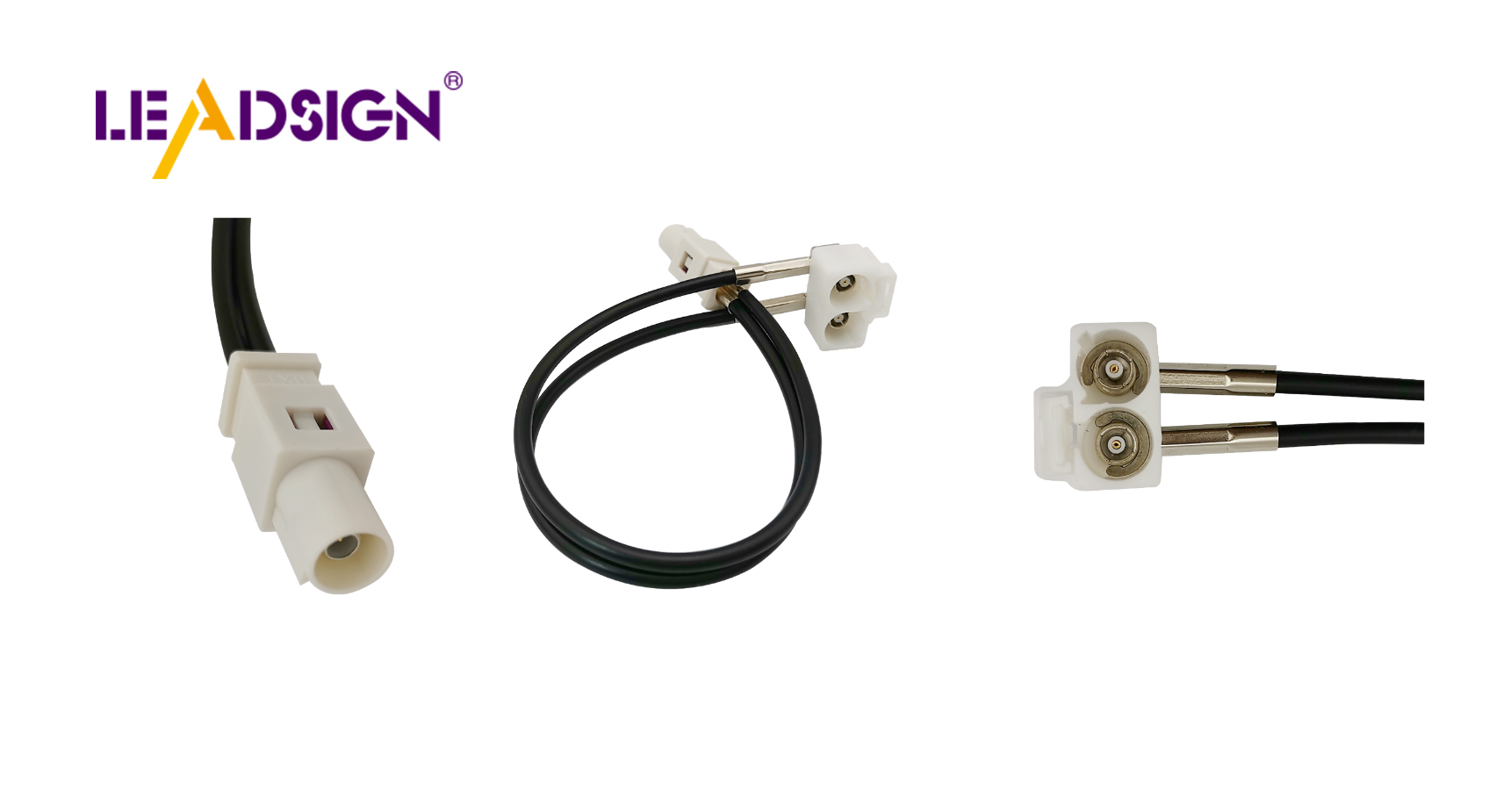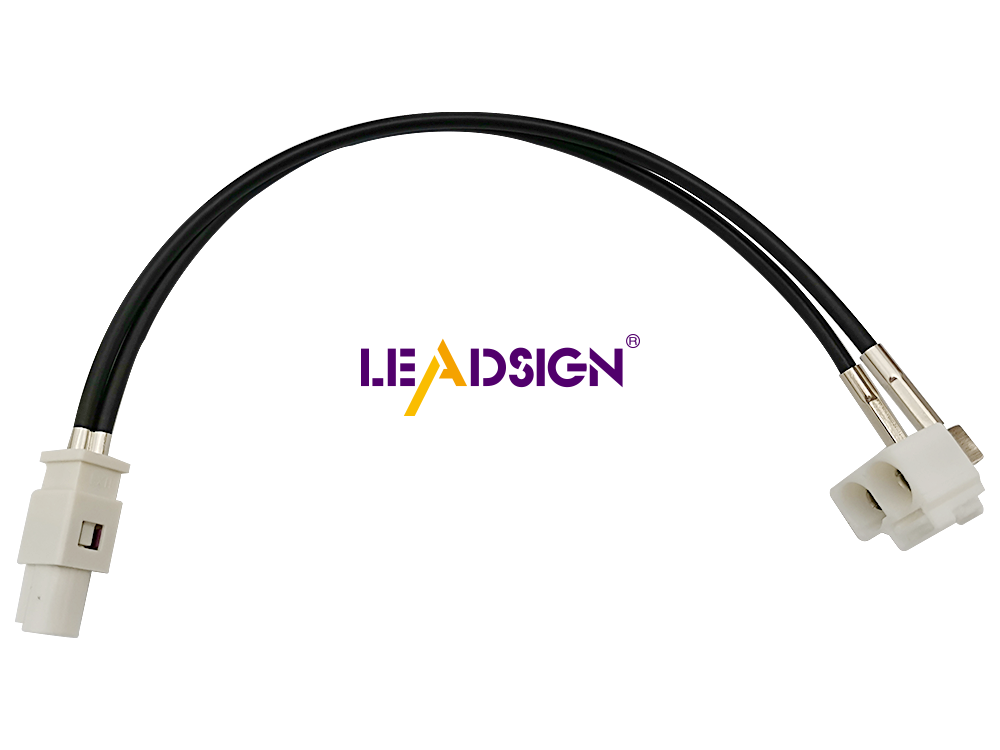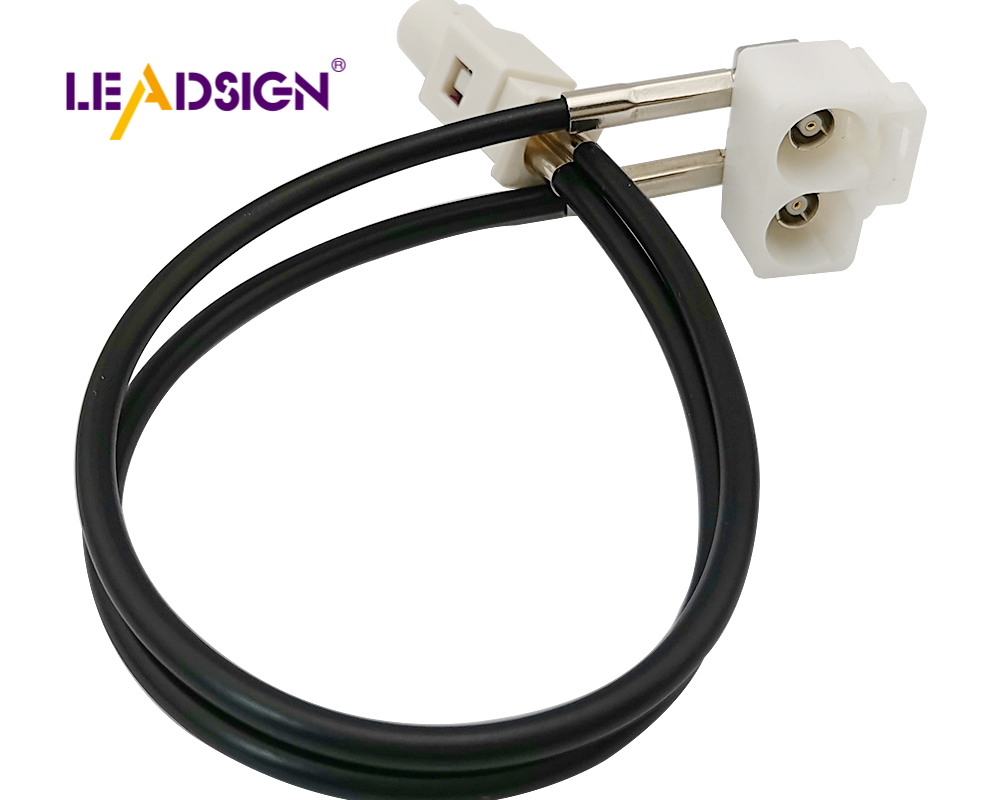Comparing Copper and Aluminum in Two Pin Automotive Wiring

Choosing the right car wiring wire is important. Copper is great because it conducts electricity well and doesn't rust easily. This makes it a popular choice for car wires. But aluminum is lighter and cheaper. You need to think about these things carefully. The right wire affects how well your car works and how long it lasts. Knowing about each material helps you choose wisely. This way, your car's wiring will work well with new car technology.
Key Takeaways
Copper wiring offers superior electrical conductivity, ensuring better performance for your car's electrical systems.
While copper is more expensive upfront, its durability and resistance to rust can lead to long-term savings on repairs and replacements.
Aluminum wiring is lighter and cheaper, making it a cost-effective option for reducing vehicle weight and improving fuel efficiency.
Choosing aluminum requires careful installation to prevent issues like loose connections and overheating due to its thermal expansion.
Consider your specific needs: opt for copper for reliability and longevity, or aluminum for initial cost savings and weight reduction.
Understanding the trade-offs between copper and aluminum can help you make an informed decision that enhances your vehicle's performance and lifespan.
Electrical Conductivity

Knowing how well materials carry electricity is key for car wiring. This affects how your car's electrical parts work.
Copper Conductors
Advantages of Copper Conductivity
Copper wires are great at carrying electricity. They let more electricity flow with less energy loss. This helps your car's electrical parts work well.
Impact on Automotive Performance
Copper wires make your car work better. Lights and sensors run smoothly. Copper is strong and lasts long, so you have fewer problems.
Aluminum Conductors
Advantages of Aluminum Conductivity
Aluminum wires are lighter and cheaper than copper. They are good if you want to save money and reduce car weight.
Impact on Automotive Performance
Aluminum wires need to be thicker to work like copper. They save fuel by making the car lighter. Think about these things when choosing wires for your car.
Cost Analysis
Knowing how much copper and aluminum wires cost is important. Each type has special features that affect their value.
Cost of Copper Wires
Copper wires are great at carrying electricity and last long. But, they cost more.
Market Price Trends
Copper costs more than aluminum. This is because it works better and lasts longer. Lately, copper prices have changed a lot. In North America, prices went up in early 2024. This makes car wiring more expensive.
Long-term Cost Implications
Copper wires cost more at first but save money later. They last long, so you replace them less. Copper doesn’t rust easily, which is good in wet places. This can make copper a smart choice for lasting use.
Cost of Aluminum Wires
Aluminum wires are different. They are lighter and cheaper than copper.
Market Price Trends
Aluminum costs less than copper. This makes it good for saving money. Even if prices rise in some places, like Europe, aluminum is still cheaper. It helps cut down the first costs of car wiring.
Long-term Cost Implications
Aluminum wires are cheaper at first but have downsides. They don’t last as long and can rust more. This means more fixing later. They need to be thicker to work like copper, which can cost more. But, being light helps cars use less fuel, saving money in another way.
Weight and Durability

When picking car wires, think about weight and strength. These things affect how well your car works and lasts.
Weight Considerations
Impact on Vehicle Efficiency
The weight of car wires changes how well it runs. Aluminum wires weigh less than copper ones. Lighter wires help cars use less fuel and go farther. Using light stuff makes cars work better and pollute less. This is important as cars become more eco-friendly.
Installation and Handling
Light wires are easier to put in and move around. Aluminum is light, so it's good for big jobs where easy setup matters. You will see that aluminum wires are easier to handle when installing, saving time and effort.
Durability Factors
Resistance to Corrosion
Strength is key when picking wire materials. Copper wires fight rust better than aluminum. This means copper wires stay strong longer, lowering the chance of electric problems. You can trust copper for a safer car wire connection.
Longevity in Automotive Environments
Copper lasts longer in tough car places. It handles hot and cold better than aluminum, which changes size more. This makes copper a good pick for long-lasting setups. Aluminum is cheaper but might need fixing more often because it rusts and wears out.
By knowing these weight and strength points, you can choose the best car wire. Whether you want better running or lasting wires, knowing each material's strengths helps you pick right.
Application Suitability
When picking car wires, think about how they work in different ways. Knowing what copper and aluminum do well and not so well helps you choose better.
Copper in Car Wiring Wire Applications
Common Uses and Benefits
Copper is often used for car wires because it carries electricity well and lasts long. It's used in many car parts like power and sensors. Copper is strong and doesn't break easily when pulled through tight spots. It carries electricity without getting too hot, so your car works well.
"Copper has been used for its good electricity flow since the 1800s. It carries electricity better and stays cooler than aluminum."
Copper doesn’t rust as much as aluminum, so it's good in wet or salty places. This keeps your car's wires safe and working for a long time.
Limitations and Considerations
Copper is great but costs more. You need to think about the cost now and the benefits later. Copper is also heavier, which matters if you want a lighter car. Even with these things, copper is still a good choice for most car wires.
Aluminum in Car Wiring Wire Applications
Common Uses and Benefits
Aluminum is picked for car wires when saving money and weight is important. It's lighter, which helps cars use less fuel and pollute less. Aluminum is cheaper, making it good for saving money.
"Aluminum is lighter and cheaper, but it doesn’t carry electricity as well and can rust, which weakens it over time."
Limitations and Considerations
But aluminum has problems. It needs careful setup to avoid loose wires and getting too hot. Aluminum gets bigger when hot, which can make wires move and be unsafe. Think about these things when choosing aluminum for car wires.
Copper and aluminum wires each have their own good points. Copper is great at carrying electricity and lasts long. This helps your car work well and saves money over time. Aluminum is lighter and costs less at first, which helps save fuel. When picking, think about what matters to you: copper for being strong and saving money later, or aluminum for being light and cheap now. Your choice affects how your car runs, so think about these things carefully.
FAQ
What makes copper wiring special?
Copper wires carry electricity really well. They don't rust easily, so they last long. Copper is bendy and easy to put in cars. It can handle heat without breaking, which makes it reliable.
Why use aluminum wiring in cars?
Aluminum wires are light, helping cars save fuel. They cost less than copper, which is good for saving money. But, they need careful setup to stop loose connections.
How does aluminum wiring work for power?
Aluminum wires send power well but need to be thicker than copper. They are lighter but take more space. Being light helps cars run better by cutting weight.
Is aluminum wiring safe?
Aluminum wires are mostly safe but need special care. Wrong parts can be risky, so use the right ones. Check them often to keep them safe.
How do copper and aluminum fight rust?
Copper wires resist rust better than aluminum. This makes copper last longer in wet places. Aluminum can rust but works well with protection.
Why is copper good for high-performance?
Copper wires are great for high power because they carry electricity well. They lose less energy, keeping car parts working well. They last long, so you change them less.
Can aluminum wiring help car design?
Yes, aluminum wires are light, helping new car designs. They save space but need careful setup to avoid problems.
How do copper and aluminum properties affect use?
Copper is good for important car parts because it carries power well and doesn’t rust. Aluminum is light and cheap, good for saving weight.
What costs more over time, copper or aluminum?
Copper costs more first but saves money later because it lasts. Aluminum is cheaper first but might cost more later due to rust and thicker wires.
How to pick between copper and aluminum for your car?
Choose based on what you need. Copper is strong and lasts long. Aluminum is light and cheap. Think about your car's needs and where it will be used.
See Also
Understanding HSD Connectors Essential for Automotive Applications
Enhancing Data Transfer in Vehicles with Advanced Connectors
Benefits of HSD Connectors for Automotive System Efficiency

